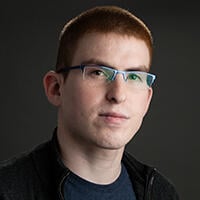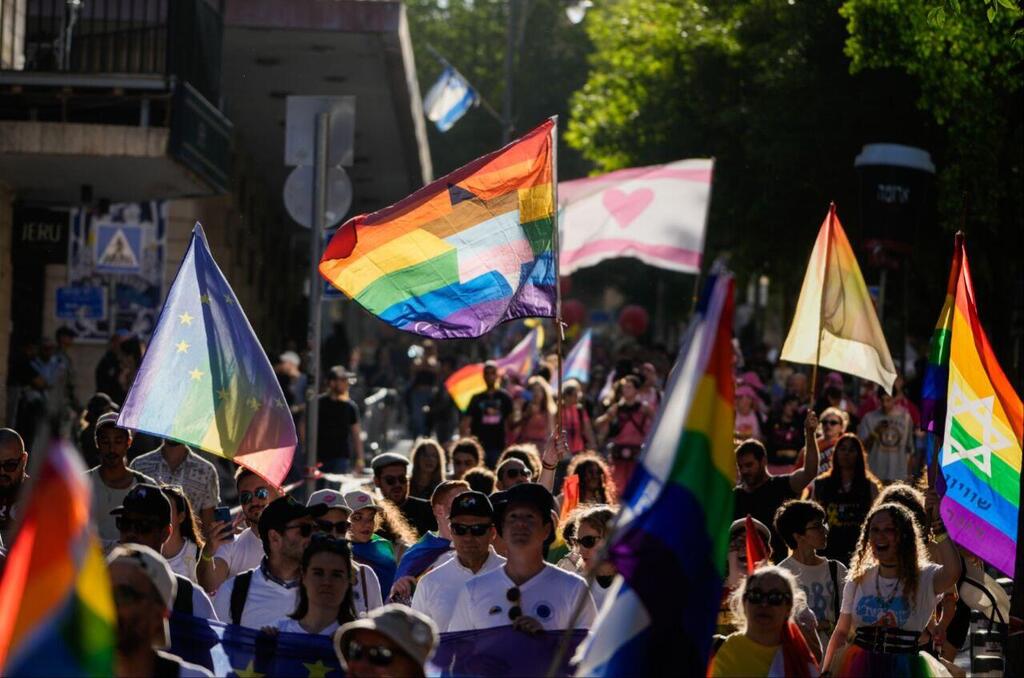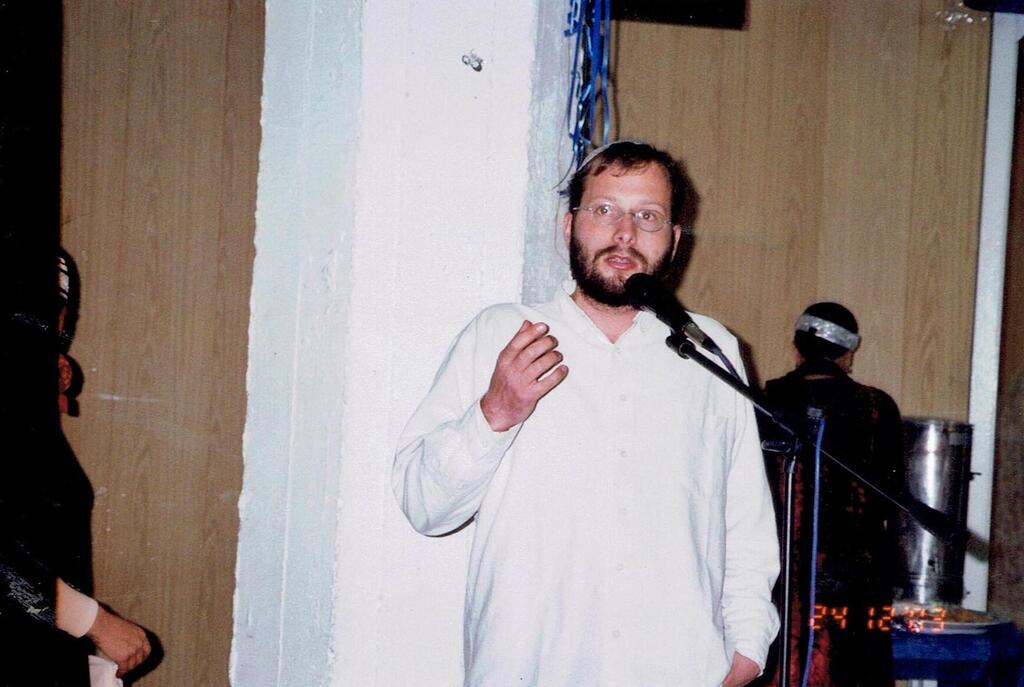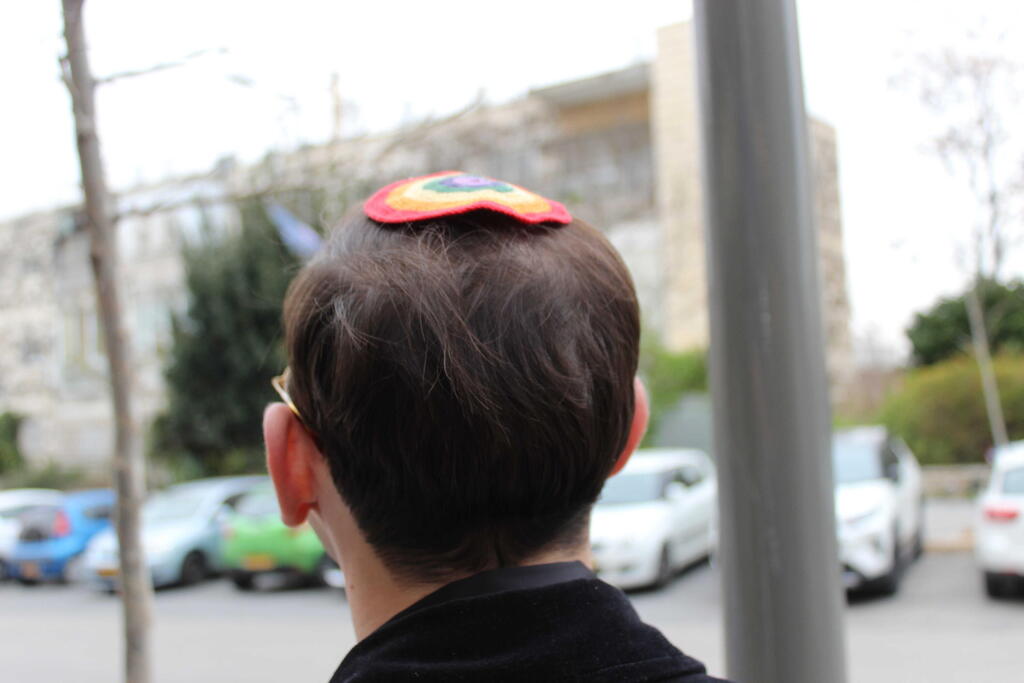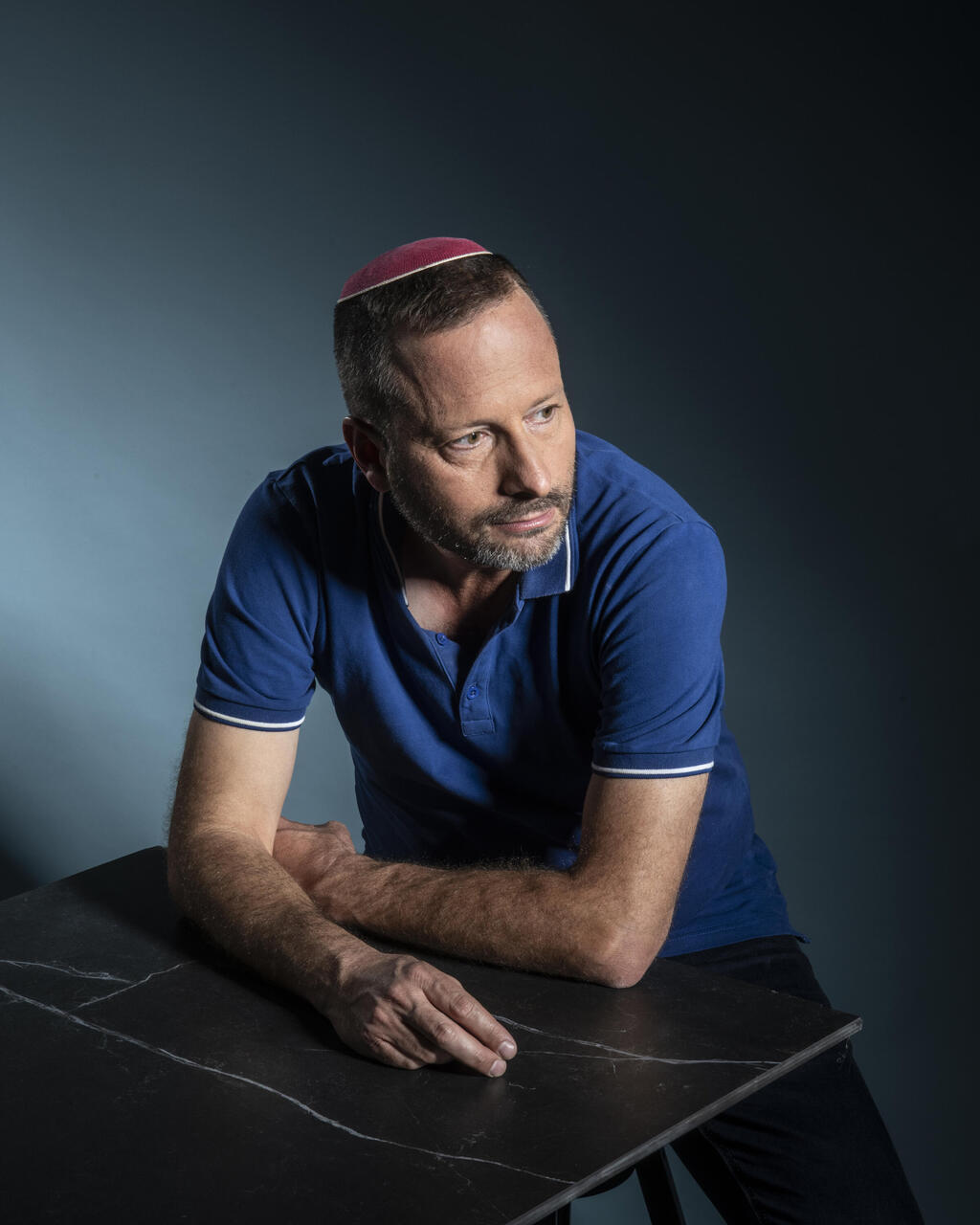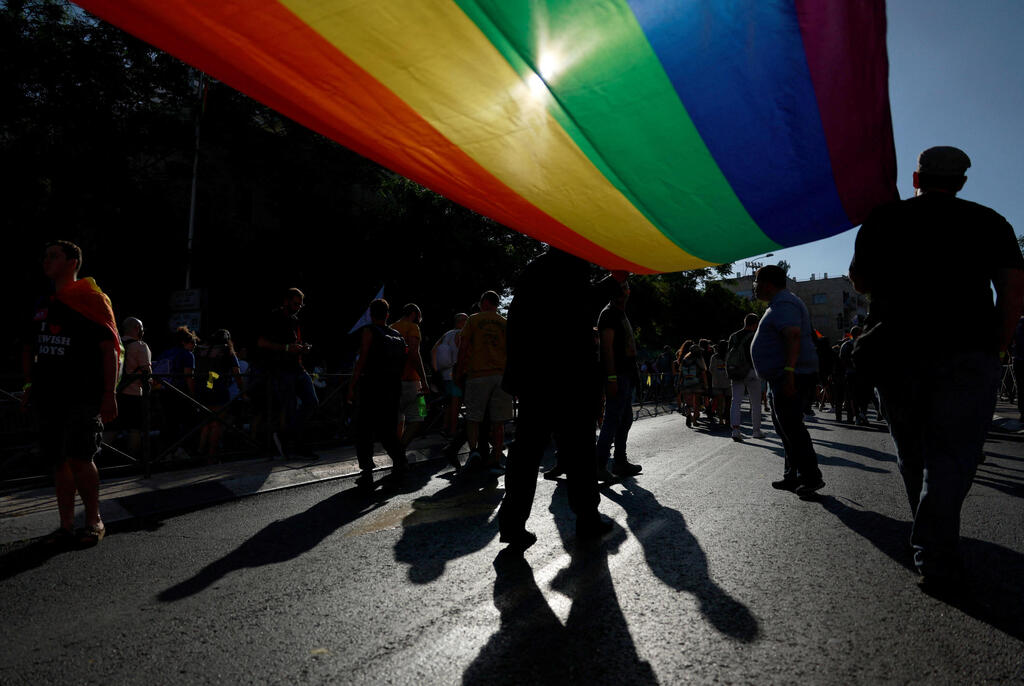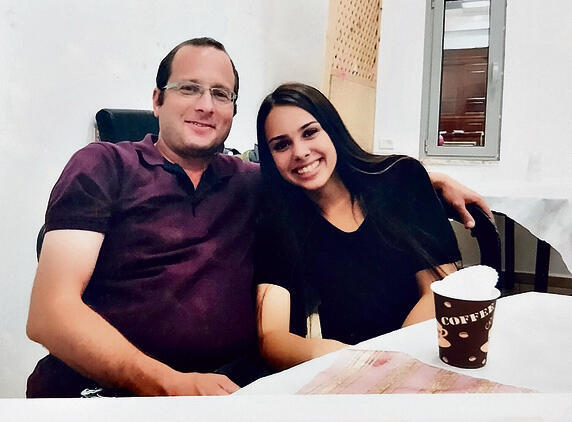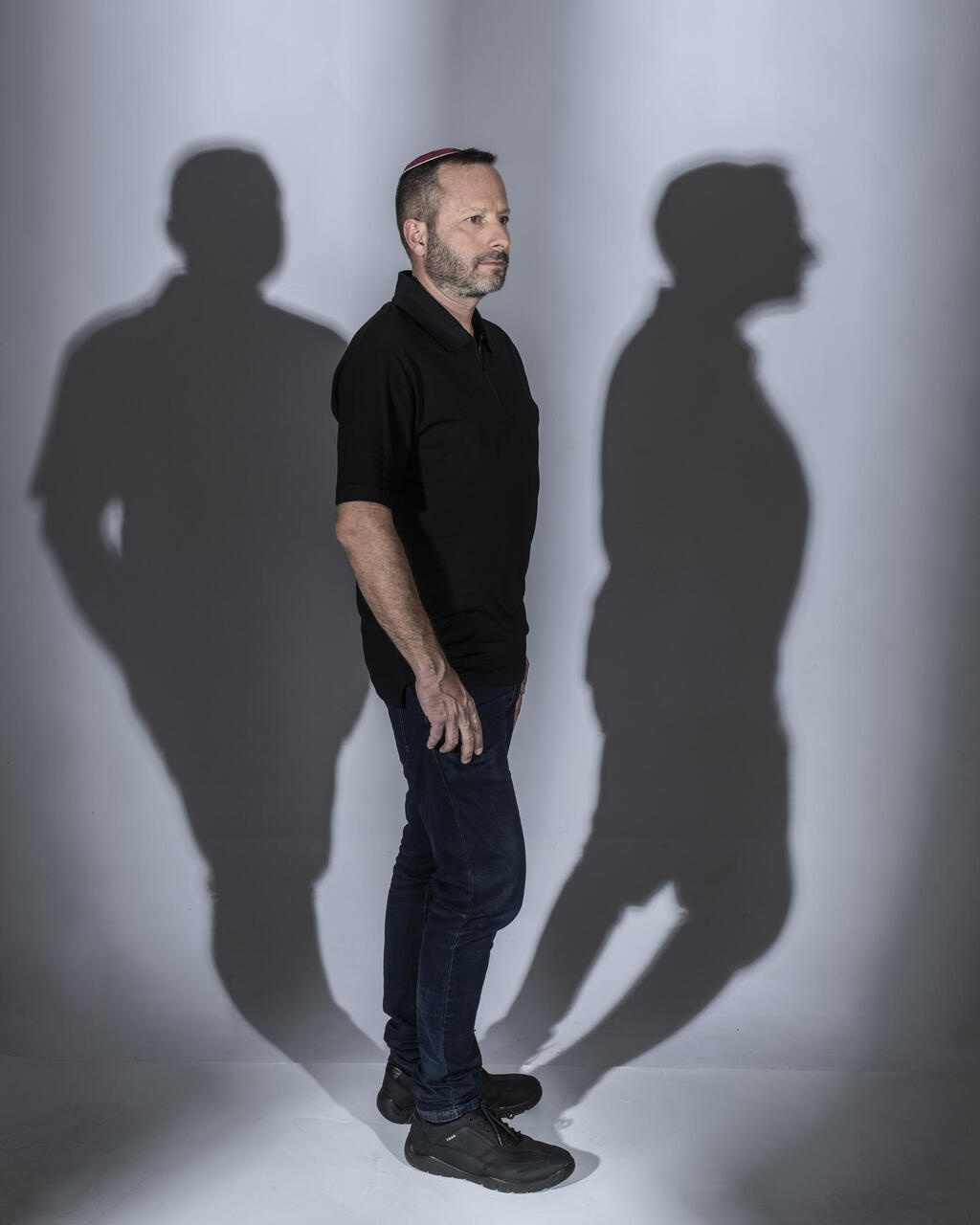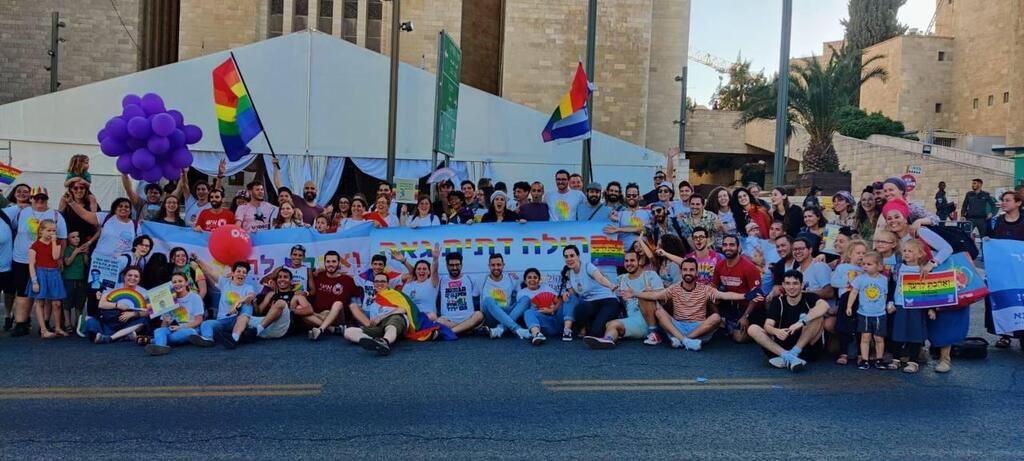Getting your Trinity Audio player ready...
Shmuel Lax was once the face of “conversion therapy,” a term applied to methods professing to alter sexual orientation or gender identity but which, in practice, invariably cause emotional damage. In addition to his efforts to convince others that sexual orientation can be changed, he led workshops and groups within the conversion therapy organization and, going by received definitions, was a “conversion therapist.” He’s now in a very different place and he’s doing penance.
“I’m asking for forgiveness, saying I’m sorry for all the years I told people I treated that the conversion therapy works and that one can change,” he says. “The truth is that I was wrong. And I’m asking for forgiveness. I want to say to everyone I’ve told conversion therapy works: I’m sorry you believed it. I wanted it to work. And it doesn’t. I’m asking for your forgiveness.”
Shmuel Lax was once regarded as a conversion therapy “success story.” He married a woman, had children with her, and set up a strictly orthodox home in the religious community of Ofra. He found his way to conversion therapy at the age of thirty as he was finding his attraction to men distressing. After three years of therapy, his counselor told him he was “cured.” Lax turned himself into a bolt in the machine, guiding groups, manning the helpline, and working to promote the idea. Just one thing clouded Lax’s “success story” – his attraction to men hadn’t disappeared at all.
I met Lax, now divorced, alongside his male partner, Shay. He’s trying, as he puts it, to "make amends” for the time he spent engaged in conversion therapy. “It causes enormous pain and, ultimately, damage” he says. “I’m telling anyone who can hear: I advise not trying it. I lived a lie for years. I told myself it worked while, all the time, was burning up inside. Conversion therapy doesn’t work. It just creates frustration. I really thought I could change my sexual orientation, but in the end, I reached my truest place of self-acceptance.”
As he talks, every now and then, words from his former incarnation will slip out. It may be variants of the term “grappling with” used as a codeword describing people whose sexual orientation is not heterosexual. He might use the term “opposite orientation.” He stresses that he’s using these terms only as these are the terms used in the conversion therapy organization. Lax, 49, was deep-rooted in the anti-LGBT world. He demonstrated against Pride, and wouldn’t let his children listen to the music of gay artists such as Ivri Lider, Harel Skaat, or Dana International. He promoted conversion therapy every way he could.
He says that his work with “Atzat Nefesh” started out of gratitude that he “stopped being gay” thanks to the treatment. “I felt indebted to the organization. I went to tell rabbis and phycologists how much it worked” he says. “I even attended a committee meeting at Tel Hashomer designed to submit a report to the health ministry that it was okay. All this time, I felt I was lying to myself.”
As all this was going on, did you still feel attracted to men?
“Yes. That’s the crazy part of it all. I was convinced and I went along with it. I was afraid to say ‘Hey. Actually, it doesn’t work’. What would I now tell my wife? My psychologist? That it doesn’t work? It’s unpleasant. I went along with it like a horse with blinders charging onward, ignoring everything else.”
I was falling apart
Lax is one of nine children raised by Holocaust survivor parents in a national religious home in Jerusalem. His upbringing was standard religious Zionist, attending a Hesder Yeshiva, serving as a Communar in Bnei Akiva and in an armored corps battalion as a religion NCO attending to soldiers’ religious needs. During adolescence, he already knew there was something different about him. “Inside, I felt this attraction, but I didn’t know what it meant, and I was ashamed of it” he says. “I’m from a very conservative, religious home. My environment was very conservative. I didn’t know how to take it.”
During his military service, Lax decided that, come what may, he’d marry a woman, in the hope that his attraction to men would pass anyway. He was married for 25 years to a religious actress with whom he had nine children. “I told her I’d experimented, that it was in the past and that I could live with it. I thought it would go away with marriage” he says.
Over eight years into the marriage, around his thirtieth birthday, it all came to the surface. “When I hit thirty, I felt I was falling apart. I wasn’t at peace with myself or the woman I was living with” he says. He came across an Atzat Nefesh advertisement in a religious newspaper and phoned the helpline.
“I called them in tears and told them I had an ‘opposite orientation’, that I was married, I had children and a wife and that I didn’t know what to do with it all” he says. “They gave me a phone number for a counselor and I spoke to my wife before calling. I was still calling it ‘opposite orientation’. I never called it ‘gay’ or ‘homosexual’. These words weren’t in my vocabulary and I couldn’t say them out loud. I remember crying for two hours. My wife told me she’d stay by my side to the end, that I’d go for counseling and that would be the end of it. We now realize that she didn’t really know what it all meant.”
What did the conversion therapy entail?
“The counselor asked about life in the home in which I was raised. They asked me about my parents, how dominant my father was, how dominant my mother was. The counselor didn’t have even the most basic training as a psychologist. The treatment was very hard. I’d come home withdrawn and cry over the tiniest things. I once came home and told my wife that my heart was hurting and an ambulance showed up and took me to the hospital.”
What was the theory behind this “treatment”?
“It led me to the conclusion that it was all my parents’ fault – that my mother had been domineering at home, my father had been weak, that I identify with my mother, and that’s why it’s the way it is. He connected my sexual orientation to various things I’d experienced in life – like losing two brothers along the way. I had a twin brother who passed away in a cot death when we were two, and a bother who was seven years older than me who was killed in tragic circumstances. I only found out I’d had a twin brother at my elder brother’s shiva when I was in sixth grade. My parents’ generation came for the Diaspora and thought it was best not to talk about it. During my therapy, I was angry with my parents for a long time and didn’t talk to them. They didn’t understand what had suddenly happened.”
Did you come out to your parents then? Have you reconciled with them?
“My father died before I had a chance to tell him. I made up with him, but we didn’t talk more than that. Thank God, I did come out to my mother and reconciled with her. As I was blaming her for it, she asked whether it was her fault. I said, ‘Mom, it’s not your fault. I have chosen to live. It’s up to you. Would you rather have a live son or a dead son?’. She answered, ‘I’d rather have you alive, and I accept you as you are. That’s who you are'.”
This is my second time meeting Lax who lives with his partner in Ariel. I first met him at a “community meeting” in Jerusalem designed for the whole religious LGBT community as well as parents, and anyone else wanting to deepen the family conversation by hearing their stories from up-close. The evening was organized by religious gay activist, Nadav Schwartz who received an honorary award from the Social Equality Ministry.
In his home, with shelves covered in Judaica, Lax tells me in a hushed tone, how after his “therapy,” he began conducting conversion workshops for the organization himself: “I progressed with the conversion therapy and began facilitating their group workshops that they called ‘Journey to Masculinity. In these workshops, people felt a sense of euphoria as they now thought they could change, but it was all very turbulent. The idea behind these workshops is that what causes this orientation is something broken about your masculinity - because of your identification with your mother and your shame about all kinds of stuff you’ve been through.”
These theories behind conversion therapy were imported to Israel from American conservative circles. At the time, Lax didn’t understand their potential damage. “I counselled people coming out of the workshop. I’d also spend three nights a week after work with other patients at lectures at my counsellor’s home, so I was away from my family” he says. “When the treatment was completed, my counsellor told me, ‘You’re not attracted to men anymore. It’s over’. I was on top of the world.”
Lax was a diligent conversion agent working to spread the “You Can Change” good news. Words weren’t enough. He was also out demonstrating against the gay parade. “I’d stand on the surrounding streets holding signs. The message was that you can change, and if you haven’t changed, you haven’t tried hard enough” he says.
Lax’s partner buries his face in his hands. It’s hard for him to hear or imagine the things Shmuel, who now seems so sensitive and delicate, had done in the past. “I was also married to a woman for 27 years. We have five children” says Shay. “But I was always pro-LGBT. It’s hard for me to hear that he was on the other side, against LGBT - the very people I was angry with for so many years. He didn’t know better. It pains me to think that he might have caused damage to other people. But he’s seen the error of his ways.”
Lax goes on to explain his attitude toward people who would come to him for advice on how to change their sexual orientation. “At first, I was very impatient,” he says. “I’d hear all kinds of stories from people who said they’d undergone conversion therapy, that it hadn’t worked and that you can’t change. I’d reply, ‘You haven’t tried enough.’ I then realized that I was judging people. I couldn’t change myself, and all of this was just one big show. I so wanted it to be true. I was just telling myself stories. During this journey, I became a religious extremist. I had a huge kippa and peyot behind my ears. I wouldn’t let the children listen to music by artists who were out of the closet.”
Lax felt very much appreciated for his work at Atzat Nefesh. “I met all these rabbis and I received lot of compliments and admiration” he says. Then came the first warning signs. “Some of the people who’d done the Journey to Masculinity workshops started complaining about lack of sensitivity as well as violent elements.” he said. “Even in the workshops I was supervising.”
What went on in these workshops?
“It was a rather rough kind of psychodrama. They shout at you. Physical stuff too: They tie people up or throw mattresses at them to make them break down their own boundaries. During my Journey to Masculinity course, I was on the verge of a nervous breakdown. Starting every day with a boom like this is highly irresponsible.”
How did Atzat Nefesh respond to what you said about the violent content?
“It changed things for people in the organization. They understood that there was a problem. I toned down the content as requested by organization leaders. At the same time, I learned how to facilitate self-awareness groups. In one session, I used Shai Gabso’s song, ‘I Raise My Head’ and there were raised eyebrows. Toward the end of my time there, they started telling volunteers to be careful not to promise a complete change in sexual orientation - clearly as a result of pressure from outside.”
After years of working in this controversial organization, what made you realize you’d taken as much as you could?
“I sat and thought that I should get to know myself again. I spoke to God. It was poignant and painful, and filled with a great deal of crying” he says. “It was a conversation of self-acceptance. I am a person who believes in God, and I accepted that I’m a homosexual. Until that moment, I didn’t think the two could go together.”
Did you get yourself treatment after that “treatment”?
“Over the past few years, I’ve had very significant psychotherapy by professionally licensed therapists, addressing childhood damage. Their treatment clarified how painful the things I’d been through had been, that they were not connected to my sexual orientation, and how much pain I’d experienced in conversion therapy. It’s important not to keep things bottled up. Men often don’t show weakness, and their ego means they don’t get treatment.”
Choosing truth over a lie and its concealment also led him, three years ago, to divorcing the mother of his children. “I loved her very much. She now says that we had been very good friends, but that I couldn’t give her what a man needs to give a woman” he says. “I forced myself to stay but, no matter how hard I tried, toward the end I simply fell. I’ll be the first to admit that what I did was a mistake. I didn’t have the courage to come and say it wasn’t working. I could have spared both of us so much pain. When I look back, it didn’t happen because the conversion therapy screwed me up. I pray she finds peace. I wish all the very best for her and the children.”
Along his journey, Lax experienced many fears and torments, sometimes so bad he wanted to die. “I spoke to God a lot. I told him, ‘I married a woman, I’m attracted to men and I’m religious. I’m as religious as can be. You put me on this earth with this sexual orientation, so spare me of all this. Take me in your own way: a car accident, a terrorist attack – anything. Then, everyone will come to my grave, pray and say: ‘Here lies this man. He was Zaddik. He was okay’.” he says. “Later, when I came out, I told him: ‘We have a deal. I love you and you love me the way I am’.”
His presence at a religious LGBT event itself constituted an apology and making amends
How were you received at events for religious gay people such as the religious LGBT organization, Havruta?
“Initially, some thought I was a foreign agent, sent by the conversion therapy organization to try to convince people to change their sexual orientation until they heard me tell my story. The suspicion wasn’t at all unreasonable. I used to give out flyers and put Atzat Nefesh stickers up in restrooms for anyone ‘dealing with the problem’ to know they had somewhere to turn. They soon realized, though, that I was there simply because I’m gay.”
He apologized to people he met whom he had talked into conversion therapy. His apology didn’t always demand articulation. His presence at a religious LGBT event itself constituted an apology and making amends. Before attending these events, he imagined some kind of underground set up, sitting in a dark corner. He was surprised to find happy, positive people. At long last, he found his place.
“Conversion therapy” is an umbrella term for a broad range of means. Some counsellors have undergone training, others are not trained as psychologists, and so have no Health Ministry approval. There is a consensus among professionals that conversion therapy is not effective, and can even damage."
Due to so much evidence suggesting the conversion therapy can be dangerous and cause emotional harm, and the fact that sexual orientation doesn’t demand treatment anyway, the Health Ministry, in 2022, published a circular strictly forbidding professionals from practicing “conversion therapy” in Israel. That said, organizations referring young people to conversion therapy continue operating under the radar.
“I’ve heard about other people who, as part of ‘behavior treatment’, were sent to watch porn with women in and try out all kinds of weird stuff” says Lax. They lost patience with some of the married guys, and just told them to live their wives, enjoy themselves outside, and go back home. They said that she doesn’t have to know and that the family unit is the most important thing. I was even told in the therapy that my wife didn’t have to know everything.”
Despite the controversial methods and the things he’s seen up close, Lax tries to speak well of those involved. “They’re not bad people, but they’re making a huge mistake” he says. “They believe that’s what’s best for the people coming to them, and that’s what’s best for Judaism. They think what they’re doing is good. It isn’t good.”
What would you like to tell anyone reading this?
“I call on rabbis, educators, and professionals, don’t push gay people to change. Don’t convince them to marry a woman, telling them it’ll be okay. It won’t be okay. You’re doing them and their wives a disservice. A woman isn’t a tool to fix a man. She also deserves to live a normal life with a man who’s attracted to her and who’ll love her. To men who are attracted to men, I say – don’t run away from yourself. Be true. Don’t marry a woman if you’re not there. Today, there are other ways to have a family.”
How do you define yourself religiously today?
“I’m religious and I belong to God, not to the rabbis, not to the Orthodox community. I know that God didn’t put me in this position for no reason. I have a role. I now feel the closest I’ve ever been to him. I believe in him more than I did when I was, apparently, more religious.”
Are you optimistic about LGBT integration into the religious community?
“We’re seeing progress in more liberal circles. In more conservative circles, however, they say not to come out. You can only be accepted with no partner. Some rabbis think there are organizations behind us wanting to turn the country upside down. It’s all nonsense. We’re human beings. We’re not here to turn people gay. There are many more Torah mitzvot we don’t keep. Would anyone ever think of ostracizing someone who doesn’t keep Shabbat? He’ll get a big hug when he goes to synagogue. God is for everyone, including gay men, lesbians and transgender people.”
He very much misses his eldest daughter, Oriah, who ended her own life aged 25 over two years ago following a pronged struggle with depression. “She had a huge heart and I had a wonderful bond with her. Oriah decided not to be religious and lived with her female partner. Coming out was a very important milestone for her. She was an amazing girl, full of goodness. She was proud of my journey discovering my own truth.
His voice cracks and his eyes water. “She was my daughter, but she was also my best friend” he says. Lax plays me a Watsapp voice message from Oriah sent on Yom Kippur Eve three years ago after he’d written to her about how much he loved her and begged her forgiveness for the years he hadn’t seen her enough. “Your presence in my life means so much to me. It doesn’t matter how many mistakes you made along the way, or didn’t see because I didn’t let you see. Your presence is one of the most important and reassuring things in my life” says Oriah in the recording. I wish for you that this year will be a new beginning. It will, obviously be a challenge. But it’ll be a good path taking you to a place of inner truth.”
After this exhausting journey, Lax and his partner volunteer at Shabal (an acronym for She’hakol Bara L’khvodo - Who Created Everything for His Glory), an organization promoting tolerance in the religious community. Within the Havruta framework, they also, together run a support group for gay men from the religious community, who have been, or who still are, married to women.
“We don’t come along with an agenda telling those men still married to women that they should get a divorce” he says. “Our goal is to help them accept themselves and reach peace of mind. I come with my own truth. I don’t lie. We admit that life has its complexities, that our families present challenges and that’s it’s not easy. We also tell them that, even if one day they do get a divorce, it’s not a black hole. It’s not like life ends there.” For Lax, this opportunity to help people, guide and advise in his new truthful, honest and healthy way, constitutes closure and a penance of sorts.
Havruta Chairperson Shay Bramson, himself a survivor of conversion therapy, says that Shmuel Lax is not alone in changing his mind completely after being part of the conversion therapy machine. “We know of a few more people who had served in various roles in the conversion therapy machine,” he says.
The Center for Combating Conversion Therapy was set up at Havruta’s initiative and with the support of the Tel Aviv Municipality. “The center’s designed to unite all efforts in the struggle against the conversion therapy lie and dangerous conversion therapy methods, that have been scientifically proven to be ineffective, unethical, and that lead to self-loathing, anxiety, depression, relationship problems and suicidal tendencies” says Bramson.
The center trains counselors to work toward rehabilitation and operates a treatment group for victims of conversion therapy. Bramson says, “The center monitors, documents, and researches the dangers of conversion therapy and its agents, collects information, and analyses related data from all sectors of Israeli society. This important information helps spare dozens of LGBT people every year from the damage caused by conversion therapy. We also work with government ministries, the Knesset, and local authorities to prohibit and counteract the efforts of conversion therapy agents and their supporters from disseminating their pseudo-scientific ideas, and offer legal support.”
Havruta Director Nathaniel Scheler says, “We have therapists who speak both religious and LGBT languages, and a helpline providing response primarily to Haredim with no other means of communication. We can be contacted on *2972 Sunday through Wednesday, 20:00-22:00. Our organization holds community Shabbatot, events and workshops and has social groups across the country – in Jerusalem, Tel Aviv, Haifa, Beersheba, Gush Etzion, and Ariel.”
He adds, “We maintain dialogue with rabbis and work with key figures in the religious community, media, and the general Israeli public to eradicate homophobia. We fight the hate lobby and organizations that destroy families. We march in the Jerusalem gay parade and constitute a bridge between various communities and identities.”
Get the Ynetnews app on your smartphone: Google Play: https://bit.ly/4eJ37pE | Apple App Store: https://bit.ly/3ZL7iNv
If someone you know is in crisis, or may be suicidal, do not hesitate: Encourage them to seek professional help and stress the importance of such an approach. Try helping them turn to professionals within the community or to national support authorities, such as ERAN, Israel's emotional first aid service. Tel: 1201, or Sahar – offering free emotional support online sahar.org.il.


